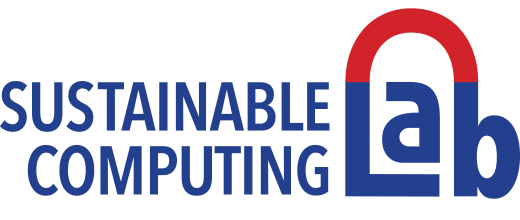 by Sarah Spiekermann, Professor of Business Informatics & Author,
by Sarah Spiekermann, Professor of Business Informatics & Author,
Vienna University of Economics and Business, Austria
Being an “activist” sounds like the next big hack in order to change society for the better; important work done by really smart and courageous people. But I wonder whether these high standards for activism suffice to really change things on the ground. I think we need more: We need activism on the ground.
What is activism on the ground?
By activism on the ground I mean all of us need to be involved: anyone who consumes products and services. Anyone who currently does not engage in any of those “rational choices” that economists ascribe to us. Lets become rational! Me, you, we all can become activists on the ground and make markets move OUR way. How? By switching! Switching from the products and services that we currently buy and use, where we feel that the companies who provide us with these services don’t deserve our money or attention or – most importantly – any information about your private life.
For the digital service world I have started to think about how to switch for quite some time. And in November last year I started a project with my Master Class in Privacy & Security at Vienna University of Business and Economics: We went out and tested the market leading Internet Services that most of us use. We looked into their privacy policies and checked to what extent they give us fair control over our data or – in contrast – hide important information from us. We benchmarked the market leaders with their privacy-friendly competitors. We looked at their privacy defaults and the information and decision control they give us over our data. To check whether switching to a privacy-friendly alternative is a realistic option. We also compared all services’ user experience (nothing is worse than functional but unusable security…). And guess what? Ethical machines are indeed out there.
So why not switch?
Here is the free benchmark study for download that gives you the overview.
Switching your messenger services
For the messenger world, I can personally recommend Signal, which works just as well as WhatsApp does; only that it is blue instead of green. I actually think that WhatsApp does not deserve to be green, because the company shares our contact network information with anyone interested in buying it. My students found that Signal’s privacy design is not quite as good as Wickr Me. I must admit that I had some trouble using Signal on my new GSMK Cryptophone where I obviously reject the idea of installing GooglePlay; but for normal phones Signal works just fine.
Switching your social network
When it comes to social networks, I quit Facebook long ago. I thought the content got a bit boring in these past 4-5 years as people have started to become more cautious in posting their really interesting stuff. I am on Twitter and find it really cool, but the company’s privacy settings and controls are not good. We did not test for Twitter addictiveness …
I signed up with diaspora* which I have known for a long time, because its architecture and early set-up was done by colleagues in the academic community. It is building on a peer-to-peer infrastructure and hence possesses the architecture of choice for a privacy-friendly social network. Not surprisingly, my students found it really good in terms of privacy. I am not fully done with testing it myself. I certainly hate the name “diaspora”, which is associated with displacement from your homeland. The name signals too much negativity for a service that is actually meant to be a save haven. But other than that I think we should support it more. Interesting enough my students also benchmarked Ello, that is really a social network for artists by now. But as Joseph Beuys already famously proclaimed “Everyone is an artists”, right? I really support this idea! And since their privacy settings are ok (just minor default issues…), this is also an alternative for creative social nomads to start afresh.
Switching your maps service
HERE WeGo is my absolute favorite when it comes to a location service. And this bias has a LONG history, because I already knew the guys who build the service in its earliest versions back then in Berlin (at the time the company was called Gate5). Many of this service’s founding fathers were also members of the Chaos Computer Club. And guess what: when hackers build for themselves, they build really well.
For good reasons my students argue that OSMAND is a great company as well. Especially their decisional data control seems awesome. No matter what you do: Don’t waste your time throwing your location data into the capitalist hands of Google and Apple. Get rid of them! And Maps.me and Waze are not any better according to our benchmark. Location services that don’t get privacy right are the worst we can carry around with us, because letting anyone know where we are at any point in time is really stupid. If you don’t switch for the sake of privacy, switch for the sake of activism.
Switching E-Mail services
I remember when a few of my friends started to be beta-users of gmail. Everyone wanted to have an account. But ever since Google decided to not only scan all our e-mails for advertising purposes but also combine all this knowledge with everything else we do with them (including search, YouTube, etc.) As a result I turned away from the company. I do not even search with Google anymore, but use Startpage as a very good alternative.
That said, gmail is really not the only online mail provider that scans all you write and exchange with others. As soon as you handle your e-mail in the cloud with free providers you must kind of expect that this is the case. My students therefore recommend to switch to Runbox. It is a pay-for e-mail service, but the price is really affordable starting with € 1,35 per month with the smallest package and below € 5 for a really comfortable one. Also: Runbox is a hydropowered e-mail service. So you also do something good for the environment supporting them. An alternative to Runbox is Tutanota. Its usability was rated a bit weaker in comparison to Runbox, but it is available for free.
Switching Calender Systems
Calendars are next to our physical locations and contact data an important service to care about when it comes to privacy. After all, the calendar tells whether you are at home or not at a certain time. Just imagine an online calendar was hacked and your home broken into while you are not there. These fears were pretty evident in class discussions I had with my students who created the benchmark study and we therefore compared calendar apps as well. All the big service providers are really not what you want to use. Simple came up as the service of choice you can use on your phone; at least if you have an Android operating system. If you do not have the calendar on you phone or no Android, Fruux is the alternative of choice for you.
In conclusion, there are alternatives available and you can make meaningful choices about your privacy. The question is now, will you be willing to do so?

